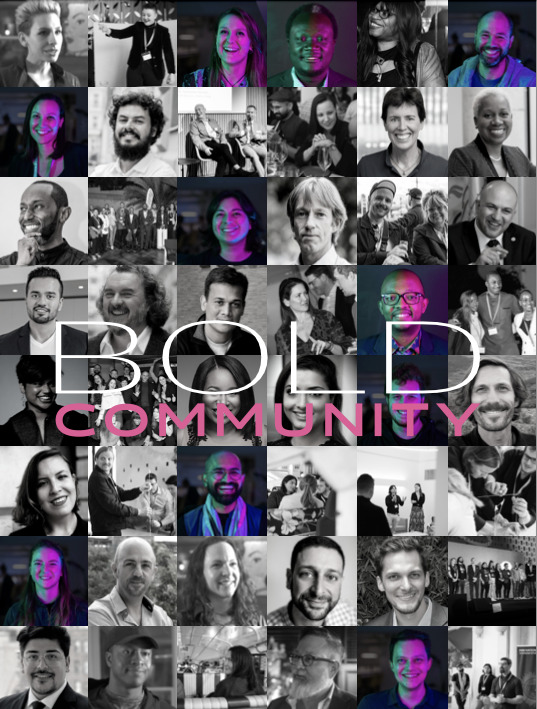49 Tipps, die die populäre Start-up-Schmiede Y Combinator frischen Gründern auf den Weg gibt

Dropbox, Reddit, Airbnb, Stripe, Parse, Docker, Disqus, Twitch und fast 1000 andere Start-ups haben eines gemeinsam: Sie alle haben in einer sehr frühen Phase ein Investment vom kalifornischen Accelerator Y Combinator bekommen, der sein Büro in Mountain View nahe dem Googleplex hat. Y Combinator, gegründet vor zehn Jahren von Paul Graham und Jessica Livingstone, gilt auch österreichischen Start-ups als begehrenswertes Ziel – dieses Jahr etwa hat es das auf Videostreaming spezialisierte Kärntner Start-up Bitmovin in einen der Batches geschafft (TrendingTopics.at berichtete), die der Accelerator zwei Mal pro Jahr aufnimmt. Im Frühling haben sich 6700 Start-ups aus der ganzen Welt beworben, um in das Intensivprogramm aufgenommen zu werden – lediglich 1,6 Prozent haben es geschafft.
Bei Y Combinator gibt es nicht nur Mentoring, Beratung, Zugang zu Silicon-Valley-Netzwerken, Pitch-Traning und Business-Kontakte, sondern auch Geld. Der Accelerator investiert üblicherweise 120.000 US-Dollar und nimmt dafür sieben Prozent der Jungfirma, die so auf eine Bewertung von mehr als einer Million US-Dollar kommt. Bis dato haben Y Combinator-Start-ups einen Gesamtwert von 65 Mrd. US-Dollar, dem Accelerator selbst gehören davon laut The Economist Firmenanteile im Wert von ein bis zwei Milliarden US-Dollar.
Tipps vom Präsidenten

Y Combinator-Präsident Sam Altman, der früher als CEO des Start-ups Loopt selbst ein Investment der Start-up-Schmiede bekam, hat kürzlich das „Start-up Playbook“ veröffentlicht, das vor Tipps und Tricks für Neugründer nur so strotzt und wahrscheinlich zu den wichtigsten Dokumenten des Jahres zählen wird, die Start-up-Vertreter lesen werden. TrendingTopics.at hat die besten Ratschläge von Altman aus dem Playbook herausgesucht:
1. Think about the really successful companies of today. They all started with a product that their early users loved so much they told other people about it. If you fail to do this, you will fail. If you deceive yourself and think your users love your product when they don’t, you will still fail.
2. It’s much better to first make a product a small number of users love than a product that a large number of users like. Even though the total amount of positive feeling is the same, it’s much easier to get more users than to go from like to love.
3. Starting a startup is not in fact very risky to your career—if you’re really good at technology, there will be job opportunities if you fail. Most people are very bad at evaluating risk. I personally think the riskier option is having an idea or project you’re really passionate about and working at a safe, easy, unfulfilling job instead.
4. In the best case, you yourself are the target user. In the second best case, you understand the target user extremely well.
5. The way to test an idea is to either launch it and see what happens or try to sell it. The former works better for consumer ideas and the latter works better for enterprise ideas.
6. Most really big companies start with something fundamentally new (one acceptable definition of new is 10x better.).
7. It’s easier to do something new and hard than something derivative and easy. People will want to help you and join you if it’s the former; they will not if it’s the latter.
8. The best ideas sound bad but are in fact good. So you don’t need to be too secretive with your idea—if it’s actually a good idea, it likely won’t sound like it’s worth stealing.
9. Almost everyone is going to tell you that your idea sucks. Maybe they are right. Maybe they are not good at evaluating startups, or maybe they are just jealous. Whatever the reason is, it will happen a lot, it will hurt, and even if you think you’re not going to be affected by it, you still will be. The faster you can develop self-belief and not get dragged down too much by haters, the better off you’ll be.
10. What if you don’t have an idea but want to start a startup? Maybe you shouldn’t. It’s so much better if the idea comes first and the startup is the way to get the idea out into the world.
11. What makes a great founder? The most important characteristics are ones like unstoppability, determination, formidability, and resourcefulness. Intelligence and passion also rank very highly. These are all much more important than experience.
12. The most successful founders are the sort of people who are low-stress to work with because you feel „he or she will get it done, no matter what it is.
13. Tech startups need at least one founder who can build the company’s product or service, and at least one founder who is (or can become) good at sales and talking to users. This can be the same person.
14. The best case, by far, is to have a good cofounder. The next best is to be a solo founder. The worse case, by far, is to have a bad cofounder.
15. A great product is the only way to grow long-term. Eventually your company will get so big that all growth hacks stop working and you have to grow by people wanting to use your product.
16. You should talk to your users and watch them use your product, figure out what parts are sub-par, and then make your product better. Then do it again. This cycle should be the number one focus of the company, and it should drive everything else.
17. Do things that don’t scale‘ has rightfully become a mantra for startups. Recruit users manually, and make the product so good the users you recruit tell their friends.
18. You want to start with something very simple—as little surface area as possible—and launch it sooner than you’d think. In fact, simplicity is always good, and you should always keep your product and company as simple as possible.
19. When there’s a disagreement about anything in the company, talk to your users.
20. Growth and momentum are the keys to great execution. Growth (as long as it is not “sell dollar bills for 90 cents” growth) solves all problems, and lack of growth is not solvable by anything but growth.
21. Keep a list of what’s blocking growth. Talk as a company about how you could grow faster. If you know what the limiters are, you’ll naturally think about how to address them.
22. Extreme internal transparency around metrics (and financials) is a good thing to do. For some reason, founders are always really scared of this. But it’s great for keeping the whole company focused on growth.
23. Talk internally about strategy all the time, tell everyone what you’re hearing from customers, etc. The more information you share internally—good and bad—the better you’ll be.
24. It turns out that it’s good if you’re growing fast but nothing is optimized—all you need to do is fix it to get more growth.
25. A related trap is thinking about problems too far in the future. The answer is to figure it out when you get there. Far more startups die while debating this question than die because they didn’t think about it enough.
26. Some of the biggest traps are the things that founders believe will deliver growth but in practice almost never work and suck up a huge amount of time. Common examples are deals with other companies and the big press launch.
27. Don’t let your company start doing the next thing until you’ve dominated the first thing. A very, very common cause of startup death is doing too many of the wrong things. Prioritization is critical and hard.
28. While great founders don’t do many big projects, they do whatever they do very intensely. They get things done very quickly. Great founders listen to all of the advice and then quickly make their own decisions.
29. Don’t get caught up in early success—you didn’t get off to a promising start by going to lots of networking events and speaking on lots of panels. Startup founders who start to have initial success have a choice of two paths: either they keep doing what they’re doing, or they start spending a lot of time thinking about their “personal brand” and enjoying the status of being a founder.
30. A CEO has to 1) set the vision and strategy for the company, 2) evangelize the company to everyone, 3) hire and manage the team, especially in areas where you yourself have gaps 4) raise money and make sure the company does not run out of money, and 5) set the execution quality bar.
31. The emotional highs and lows are very intense, and if you don’t figure out how to stay somewhat level through them, you’re going to struggle. Being a CEO is lonely. It’s important to have relationships with other CEOs you can call when everything is melting down.
32. You cannot treat it as an all-nighter. You have to eat well, sleep well, and exercise. You have to spend time with your family and friends. You also need to work in an area you’re actually passionate about—nothing else will sustain you for ten years.
33. No first-time founder knows what he or she is doing. To the degree you understand that, and ask for help, you’ll be better off. It’s worth the time investment to learn to become a good leader and manager. The best way to do this is to find a mentor.
34. It’s important that you distort reality for others but not yourself. You have to convince other people that your company is primed to be the most important startup of the decade, but you yourself should be paranoid about everything that could go wrong.
35. Another cliché that I think is worth repeating: Building a company is somewhat like building a religion. If people don’t connect what they’re doing day-to-day with a higher purpose they care about, they will not do a great job.
36. The best people have a lot of opportunities. They want to join rocketships. If you have nothing, it’s hard to hire them. Once you’re obviously winning, they’ll want to come join you.
37. Don’t compromise on the quality of people you hire. Everyone knows this, and yet everyone compromises on this at some point during a desperate need. Everyone goes on to regret it, and it sometimes almost kills the company.
38. Try hard to have everyone in the same office. For some reason, startups always compromise on this. But nearly all of the most successful startups started off all together.
39. Competitors are a startup ghost story. First-time founders think they are what kill 99% of startups. But 99% of startups die from suicide, not murder. Worry instead about all of your internal problems.
40. 99% of the time, you should ignore competitors. Especially ignore them when they raise a lot of money or make a lot of noise in the press.
41. Try to get to ‚ramen profitability‘. Make enough money so that the founders can live on ramen—as quickly as you can. When you get here, you control your own destiny and are no longer at the whims of investors and financial markets.
42. Not having enough money can be bad, but having too much money is almost always bad.
43. It is a bad idea to try to raise money when your company isn’t in good enough shape to attract capital. You will burn reputation and waste time.
44. When investors tell you no, believe the no but not the reason. And remember that anything but ‚yes‘ is a ’no’—investors have a wonderful ability to say ’no‘ in a way that sounds like ‚maybe yes‘.
45. View fundraising as a necessary evil and something to get done as quickly as possible. Some founders fall in love with fundraising; this is always bad. It’s best to have just one founder do it so the company doesn’t grind to a halt.
46. The first check is the hardest to get, so focus your energies on getting that, which usually means focusing your attention on whoever loves you the most.
47. An important key to being good at pitching is to make your story as clear and easy to understand as possible. Of course, the most important key is to actually have a good company. There are lots of thoughts about what to include in a pitch, but at a minimum you need to have: mission, problem, product/service, business model, team, market and market growth rate, and financials.
48. Great board members are one of the best outside forcing functions for a company other than users, and outside forcing functions are worth more than most founders think. Be willing to accept a lower valuation to get a great board member who is willing to be very involved.
49. Remember that at least a thousand people have every great idea. One of them actually becomes successful. The difference comes down to execution.





























